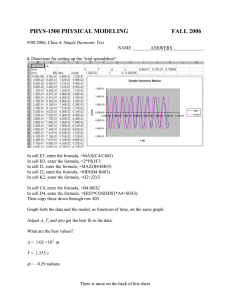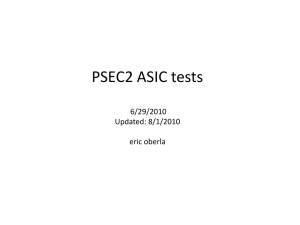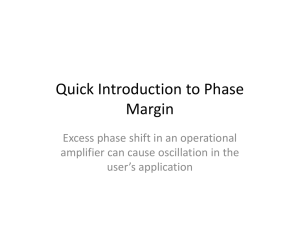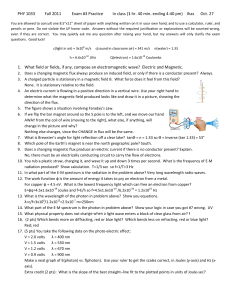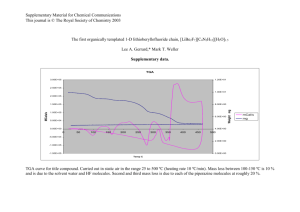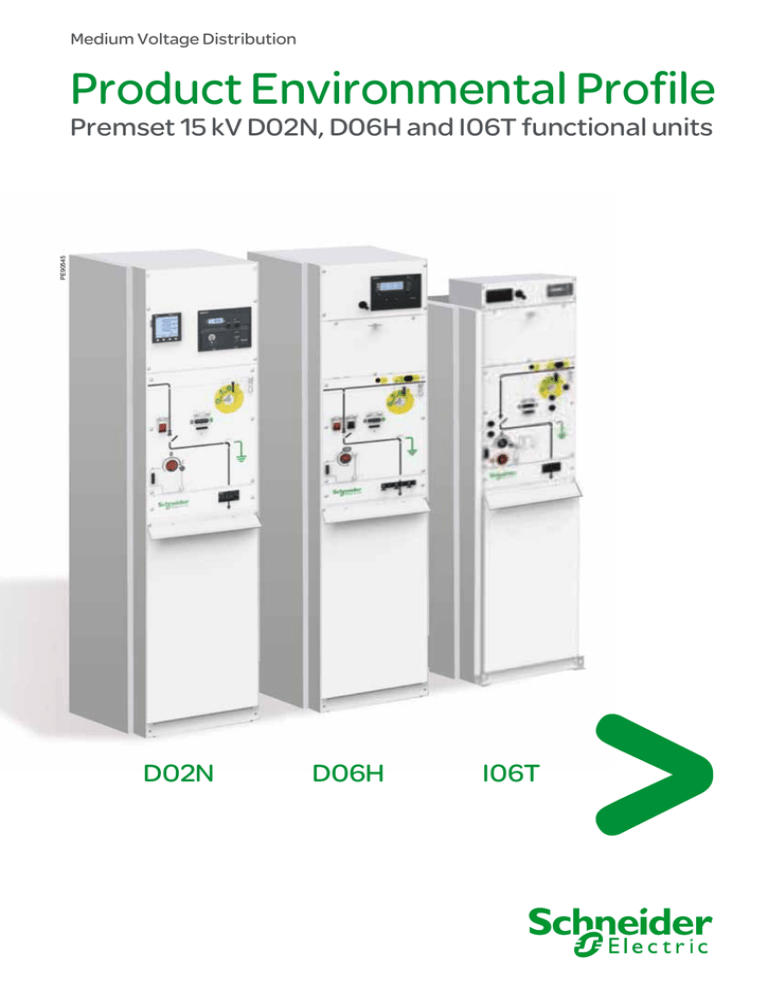
Medium Voltage Distribution
Product Environmental Profile
PE90545
Premset 15 kV D02N, D06H and I06T functional units
D02N
D06H
I06T
Product Environmental Profile - PEP
Product overview
Premset 15 kV D02N and D06H core units are dedicated to protection, disconnection and earthing of circuits.
They associate a disconnecting Circuit Breaker and a downstream earthing switch.
Rated voltage
Ur
(kV)
12
Rated current
Ir
(A rms)
100 (D01N) - 200 (D02N)
Rated short-time withstand current
and duration
D02N
The D02N is dedicated
to MV/LV transformer
protection with a
200 Amp Circuit Breaker.
15
Ik
(kA rms)
25
25
20
21
21
tk
(s)
1
2
4
1
3
Short-circuit breaking capacity
Isc
(kA rms)
25
25
20
21
21
Rated making capacity of Circuit
Breaker and earthing switches
Icm
(kA peak)
65
65
52
54
54
No-load mechanical endurance
of Circuit Breaker
M1 class
(IEC 62271-100)
Number of
operations
2000
Electrical endurance
of Circuit Breaker
E2 class
(IEC 62271-100)
Number of
operations
Acc. E2 class, without reclosing duty
Operating sequence
O - 15 s - CO
Maximum number of operations at Isc
5
Total clearing time at Isc
Fault detection to
arc extinguishing
(ms)
< 60
No-load mechanical endurance
of earthing switch
M0 class
(IEC 62271-102)
Number of
operations
1000
Making capacity endurance
of earthing switch
E2 class
(IEC 62271-102)
Number of
operations
5
Rated voltage
Ur
(kV)
12
Rated current
Ir
(A rms)
630
Rated short-time withstand current
and duration
15
Ik
(kA rms)
25
25
20
21
21
tk
(s)
1
2
4
1
3
Short-circuit breaking capacity
Isc
(kA rms)
25
25
20
21
21
Rated making capacity of Circuit
Breaker and earthing switches
Icm
(kA peak)
65
65
52
54
54
Capacitive breaking capacity
(IEC 62271-100)
CC2 / LC2
D06H
Capacitive
break class
No-load mechanical endurance
of Circuit Breaker
M2 class
(IEC 62271-100)
Number of
operations
10000
The D06H is dedicated
to incoming lines or
feeders protection with
630 Amp Circuit Breaker.
Electrical endurance
of Circuit Breaker
E2 class
(IEC 62271-100)
Number of
operations
Acc. E2 class, without reclosing duty
Operating sequence
O - 0.3 s - CO -15 s - CO
Maximum number of operations at 100% Isc
> 50
Total clearing time at Isc
Fault detection to
arc extinguishing
(ms)
< 100
No-load mechanical endurance of
earthing switch
M0 class
(IEC 62271-102)
Number of
operations
1000
Making capacity endurance of
earthing switch
E2 class
(IEC 62271-102)
Number of
operations
5
Premset 15 kV I06T core unit is dedicated to switching, disconnection and earthing of circuits.
They associate a disconnecting load-break switch and a downstream earthing switch.
Rated voltage
Ur
(kV)
12
Rated current
Ir
(A rms)
630
Ik
(kA rms)
25
25
20
21
21
tk
(s)
1
2
4
1
3
Rated making capacity of main
and earthing switches
Icm
(kA peak)
65
65
52
54
54
No-load mechanical endurance
of main switch
M1 class
(IEC 62271-103)
Number of
operations
1000
Electrical endurance
of main switch
E3 class
(IEC 62271-103)
Number of
operations
100
Making capacity endurance
of main switch
E3 class
(IEC 62271-103)
Number of
operations
5
No-load mechanical endurance
of earthing switch
M0 class
(IEC 62271-102)
Number of
operations
1000
No-load capacity endurance
of earthing switch
E2 class
(IEC 62271-102)
Number of
operations
5
Rated short-time withstand current
and duration
I06T
The representative
products used for the
analysis are the Premset
15 kV D02N, D06H
and I06T functional units,
including these items.
15
• D02N functional unit and D06H functional unit:
- The Core unit with embedded and screened vacuum bottles, the 3-position
mechanism CI1 type (D02N) or 0-C0 type (D06H), the earthing switch.
- The bottom compartment and the cable connections.
- The VIP 40 (D02N) or VIP 400 (D06H) protection, with relay, current transformers,
and actuator.
- The busbar system.
• I06T functional unit:
- The Core unit with embedded and screened vacuum bottles, the 3-position
mechanism CIT type, the earthing switch.
- The bottom compartment and the cable connections.
- The cable testing device.
- The busbar system.
The environmental
impacts of these
referenced products
are representative
of the impacts
of the other products
of the range which
are developed with
a similar technology.
The environmental
analysis was performed
in conformity
with ISO 14040.
Constituent materials
The mass of the Premset 15 kV D02N functional unit is 162 kg, including the packaging.
The constituent materials are distributed as follows:
Wood 7.4 %
Other materials under 0.4%
with a total of 0.6 %
Elastomer 4.1 %
DE90219
PBT polybutylene terephtalate 0.6 %
PA polyamide 0.5 %
PET polyethilene terephtalate 0.4%
PE polyethylene 1.0 %
PC polycarbonate 1.6 %
Steel 45.2 %
Epoxy resin 21.8 %
Zinc 0.4 %
Brass 0.4 %
Ferrous alloys 1.6 %
Stainless steel 2.1 %
Copper 5.7 %
Aluminium 6.5 %
The mass of the Premset 15 kV D06H functional unit is 162 kg, including the packaging.
The constituent materials are distributed as follows:
Wood 7.4 %
Elastomer 4.1 %
Other materials under 0.4%
with a total of 0.7 %
DE90219
PBT polybutylene terephtalate 0.6 %
PA polyamide 0.5 %
PET polyethilene terephtalate 0.4%
PE polyethylene 1.0 %
PC polycarbonate 1.6 %
Steel 45.4 %
Epoxy resin 21.8 %
Zinc 0.4 %
Brass 0.4 %
Ferrous alloys 1.1 %
Stainless steel 2.2 %
Copper 5.9 %
Aluminium 6.5 %
PA polyamide 0.4 %
PP polypropylene 0.1%
PBT polybutylene terephtalate 0.1 %
Wood 7.1 %
Elastomer 4.0 %
Other materials under 0.06%
with a total of 0.1 %
DE90220
The mass of the Premset 15 kV I06T functional unit is 168 kg, including the packaging.
The constituent materials are distributed as follows:
PE polyethylene 1.1 %
PC polycarbonate 2.9 %
Steel 45.0 %
Epoxy resin 21.1 %
Zinc 0.4 %
Non ferrous alloys 0.2 %
Brass 0.9 %
Stainless steel 2.1 %
Aluminium 6.2 %
Copper 8.3 %
Substance assessment
Products of this range are designed in conformity with the requirements of the RoHS directive (European
Directive 2002/95/EC of 27 January 2003) and do not contain, or only contain in the authorised proportions,
lead, mercury, cadmium, hexavalent chromium or flame retardants (polybrominated biphenyls - PBB,
polybrominated diphenyl ethers - PBDE) as mentioned in the directive.
Manufacturing
The Premset 15 kV D02N, D06H and I06T functional units are manufactured at Schneider Electric production
sites on which an ISO14001 certified environmental management system has been established.
Distribution
The Premset 15 kV D02N, D06H and I06T functional units weight and volume of the packaging have been
optimized, based on the European Union’s packaging directive.
The packaging weight is 13.7 kg. It consists of 12 kg of wood and 1.7 kg of polyethylene.
Use
The products of the 15 kV D02N, D06H and I06T functional units do not generate environmental pollution
(noise, emissions) requiring special precautionary measures in standard use.
The dissipated power depends on the conditions under which the product is implemented and used.
• For the referenced 15 kV D02N functional unit, it is 44.4 W at the nominal intensity and 3.996 W at 30 %
of the nominal intensity.
• For the referenced 15 kV D06H functional unit it is 440.6 W at the nominal intensity and 39.65 W at 30 %
of the nominal intensity.
• For the referenced 15 kV I06T functional unit it is 440.6 W at the nominal intensity and 39.65 W at 30 %
of the nominal intensity.
These thermal dissipations are negligible compared with the power which passes through the product.
End of life
At end of life, the products in the 15 kV D02N, D06H and I06T functional units have been optimized
to decrease the amount of waste and allow recovery of the product components and materials.
This product range contains battery, external electric cables, Printed Circuit Boards that should be separated
from the stream of waste so as to optimize end-of-life treatment by special treatments.
The location of these components and other recommendations are given in the End of Life Instruction
document which is available for this product range.
The recyclability potential of the products has been evaluated using the “Codde- BV recyclability
and recoverability calculation method” (version V1, 20 Sep. 2008 presented to the French Agency for
Environment and Energy Management: ADEME).
According to this method, the potential recyclability ratio is: 66 %.
As described in the recyclability calculation method this ratio includes only metals and plastics which have
proven industrial recycling processes.
Environmental impacts
Life cycle assessment has been performed on the following life cycle phases: Materials and Manufacturing (M),
Distribution (D), Installation (I) Use (U), and End of life (E).
• Modeling hypothesis and method:
- The calculation was performed on the 15 kV D02N, D06H and I06T functional units.
- Product packaging is included.
- Installation components: no special components included.
- Scenario for the Use phase: this product range is included in the category 1 Energy passing product
and the assumed service life is 20 years.
• The dissipated power depends on the conditions under which the product is implemented and used.
- For the referenced 15 kV D02N functional unit, it is 3,996 W At 30% of the nominal intensity and 44,4 W at
the nominal intensity.
- For the referenced 15 kV D06H and I06T functional units, it is 39,65 W at 30% of the nominal intensity
and 440,6 W at the nominal intensity.
• These thermal dissipations are negligible compared with the power which passes through the product.
• The electrical power model used for calculation is European model.
• End of life impacts are based on a worst case transport distance to the recycling plant (1000km).
Product Environmental Profile - PEP
Presentation of product
environmental impacts
D02N functional unit: 15 kV
Indicator
Unit
Sum
M
d
i
u
e
Raw Material Depletion
Y-1
2.01E-12
2.00E-12
1.26E-15
0.00E+00
9.10E-15
3.31E-16
Energy Depletion
MJ
2.34E+04
1.42E+04
9.20E+02
0.00E+00
8.01E+03
2.42E+02
Water depletion
dm3
6.90E+03
5.64E+03
8.74E+01
0.00E+00
1.16E+03
2.30E+01
Global Warming
g ≈ CO2
1.03E+06
5.31E+05
7.29E+04
0.00E+00
4.05E+05
1.92E+04
Ozone Depletion
g ≈ CFC-11
2.17E-01
1.30E-01
5.15E-02
0.00E+00
2.20E-02
1.36E-02
Air Toxicity
m3
3.19E+08
2.34E+08
1.37E+07
0.00E+00
6.71E+07
3.62E+06
Photochemical Ozone Creation
g ≈ C2H4
4.41E+02
2.26E+02
6.23E+01
0.00E+00
1.37E+02
1.64E+01
Air acidification
g ≈ H+
1.92E+02
1.26E+02
9.29E+00
0.00E+00
5.46E+01
2.45E+00
Water Toxicity
3
dm
2.79E+05
1.52E+05
9.11E+03
0.00E+00
1.15E+05
2.40E+03
Water Eutrophication
g ≈ PO4
4.04E+01
3.80E+01
1.21E+00
0.00E+00
9.51E-01
3.19E-01
Hazardous waste production
kg
2.22E+01
1.54E+01
2.71E-02
0.00E+00
6.71E+00
7.14E-03
Indicator
Unit
Sum
M
d
i
u
e
Raw Material Depletion
Y-1
2.10E-12
2.01E-12
6.89E-16
0.00E+00
9.03E-14
3.31E-16
D06H functional unit: 15 kV
Energy Depletion
MJ
9.41E+04
1.38E+04
5.05E+02
0.00E+00
7.95E+04
2.43E+02
Water depletion
dm3
1.72E+04
5.66E+03
4.80E+01
0.00E+00
1.15E+04
2.30E+01
Global Warming
g ≈ CO2
4.60E+06
5.24E+05
4.00E+04
0.00E+00
4.01E+06
1.92E+04
Ozone Depletion
g ≈ CFC-11
3.89E-01
1.29E-01
2.83E-02
0.00E+00
2.18E-01
1.36E-02
Air Toxicity
m3
9.14E+08
2.37E+08
7.54E+06
0.00E+00
6.66E+08
3.62E+06
Photochemical Ozone Creation
g ≈ C2H4
1.62E+03
2.14E+02
3.42E+01
0.00E+00
1.36E+03
1.64E+01
Air acidification
g ≈ H+
6.76E+02
1.26E+02
5.10E+00
0.00E+00
5.42E+02
2.45E+00
Water Toxicity
3
dm
1.31E+06
1.53E+05
5.00E+03
0.00E+00
1.15E+06
2.40E+03
Water Eutrophication
g ≈ PO4
4.87E+01
3.83E+01
6.65E-01
0.00E+00
9.43E+00
3.19E-01
Hazardous waste production
kg
8.22E+01
1.56E+01
1.49E-02
0.00E+00
6.66E+01
7.14E-03
Indicator
Unit
Sum
M
d
i
u
e
Raw Material Depletion
Y-1
2,36E-12
2,27E-12
7,79E-16
0,00E+00
9,03E-14
3,43E-16
I06T functional unit: 15 kV
Energy Depletion
MJ
9,45E+04
1,41E+04
5,71E+02
0,00E+00
7,95E+04
2,51E+02
Water depletion
dm3
1,77E+04
6,13E+03
5,42E+01
0,00E+00
1,15E+04
2,39E+01
Global Warming
g ≈ CO2
4,61E+06
5,29E+05
4,52E+04
0,00E+00
4,01E+06
1,99E+04
Ozone Depletion
g ≈ CFC-11
3,73E-01
1,09E-01
3,20E-02
0,00E+00
2,18E-01
1,41E-02
Air Toxicity
m3
9,65E+08
2,86E+08
8,52E+06
0,00E+00
6,66E+08
3,75E+06
Photochemical Ozone Creation
g ≈ C2H4
1,61E+03
1,98E+02
3,87E+01
0,00E+00
1,36E+03
1,70E+01
Air acidification
g ≈ H+
6,92E+02
1,41E+02
5,77E+00
0,00E+00
5,42E+02
2,54E+00
Water Toxicity
3
dm
1,32E+06
1,65E+05
5,66E+03
0,00E+00
1,15E+06
2,49E+03
Water Eutrophication
g ≈ PO4
5,03E+01
3,97E+01
7,52E-01
0,00E+00
9,43E+00
3,31E-01
Hazardous waste production
kg
8,43E+01
1,77E+01
1,68E-02
0,00E+00
6,66E+01
7,40E-03
• Life cycle assessment has been performed with the EIME software (Environmental Impact and
Management Explorer), version 4.1, and with its database version 11.
•The Manufacturing phase is the life cycle phase which has the greatest impact on the majority
of environmental indicators.
• This product range gets the benefit of not using SF6 gas, thank to the use of vacuum and air technologies
for breaking and disconnection and solid insulation.
System approach
As the product of the range are designed in accordance with the ROHS Directive
(European Directive 2002/95/EC of 27 January 2003), they can be incorporated without any restriction
within an assembly or an installation submitted to this Directive.
Please note that the values given above are only valid within the context specified and cannot be used directly to
draw up the environmental assessment of an installation.
Product Environmental Profile - PEP
Glossary
Raw Material Depletion (RMD)
This indicator quantifies the consumption of raw materials during the life cycle
of the product.
It is expressed as the fraction of natural resources that disappear each year,
with respect to all the annual reserves of the material.
Energy Depletion (ED)
This indicator gives the quantity of energy consumed, whether it be from fossil,
hydroelectric, nuclear or other sources.
This indicator takes into account the energy from the material produced
during combustion. It is expressed in MJ.
Water Depletion (WD)
This indicator calculates the volume of water consumed, including
drinking water and water from industrial sources. It is expressed in dm3.
Global Warming (GW)
The global warming of the planet is the result of the increase in the greenhouse
effect due to the sunlight reflected by the earth’s surface being absorbed by
certain gases known as "greenhouse-effect" gases.
The effect is quantified in gram equivalent of CO2.
Ozone Depletion (OD)
This indicator defines the contribution to the phenomenon of
the disappearance of the stratospheric ozone layer due to the emission
of certain specific gases. The effect is expressed in gram equivalent
of CFC-11.
Air Toxicity (AT)
This indicator represents the air toxicity in a human environment. It takes into
account the usually accepted concentrations for several gases in the air and the
quantity of gas released over the life cycle. The indication given corresponds to
the air volume needed to dilute these gases down to acceptable concentrations.
Photochemical Ozone Creation (POC)
This indicator quantifies the contribution to the "smog" phenomenon
(the photochemical oxidation of certain gases which generates ozone)
and is expressed in gram equivalent of methane (C2H4).
Air Acidification (AA)
The acid substances present in the atmosphere are carried by rain.
A high level of acidity in the rain can cause damage to forests.
The contribution of acidification is calculated using the acidification potentials
of the substances concerned and is expressed in mode equivalent of H+.
Water Toxicity (WT)
This indicator represents the water toxicity. It takes into account the usually
accepted concentrations for several substances in water and the quantity of
substances released over the life cycle.
The indication given corresponds to the water volume needed to dilute these
substances down to acceptable concentrations.
Hazardous Waste Production (HWP)
This indicator calculates the quantity of specially treated waste created during all
the life cycle phases (manufacturing, distribution and utilization).
For example, special industrial waste in the manufacturing phase,
waste associated with the production of electrical power, etc.
It is expressed in kg.
Schneider Electric Industries SAS
35, rue Joseph Monier
CS 30323
F-92505 Rueil-Malmaison cedex (France)
Tel.: +33(0)1 41 29 70 00
RCS Nanterre 954 503 439
Capital social 896 313 776 E
www.schneider-electric.com
ENVPEP 110602EN_V0
• Registration No.: SCHN-2011-502-V0
• Writing rules: PCR PEPecopassport 2010 :1.0
• Accreditation No. of verifier: VH05
• Programme information: www.pep-ecopassport.org
• Period of validity: 4 years
• Independent verification of the declaration and data, in compliance with ISO 14025:2006
• In compliance with the ISO 14025:2006 type III environmental declaration standard
• The critical review of the PCR was conducted by a panel of experts chaired by. J. Chevalier (CSTB)
• The information in the present PEP cannot be compared with information from another programme
02/2012
©2012 - Schneider Electric Industries SAS - All rights reserved
We are committed to safeguarding our planet by
"combining innovation and continuous improvement
to meet the new environmental challenges".

